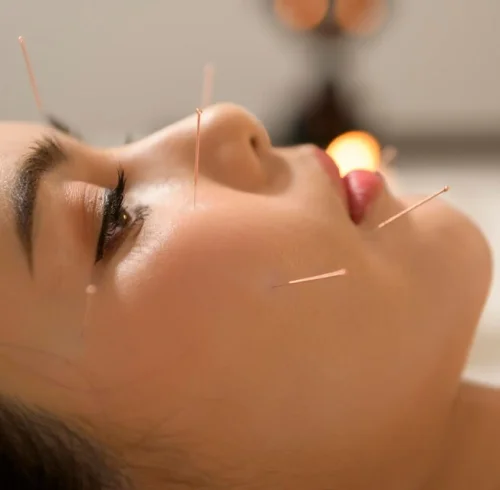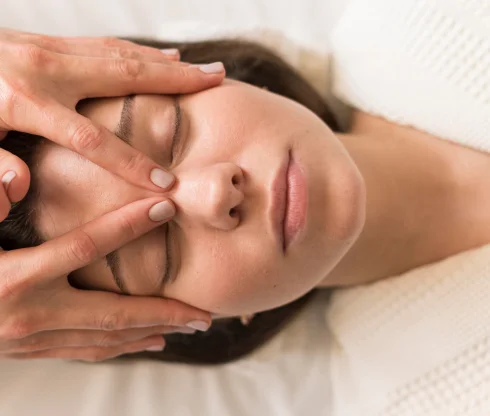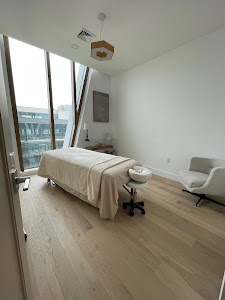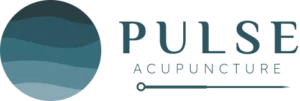Acupuncture for Bell’s Palsy
Acupuncture for Bell's Palsy
What is Bell's Palsy?

What are the Symptoms of Bell’s Palsy?
Bell’s Palsy presents a distinctive set of symptoms, primarily affecting one side of the face due to facial nerve dysfunction. These symptoms can manifest suddenly and gradually worsen over a few days:
- Facial Weakness. Difficulty in making facial expressions, resulting in a drooping or asymmetrical appearance.
- Facial Paralysis. Inability to close one eye or fully control facial movements, leading to problems with blinking and eye protection.
- Loss of Taste. Altered or diminished sense of taste on the front two-thirds of the tongue.
- Difficulty in Speech. Impaired control over facial muscles can affect enunciation and pronunciation.
- Drooling. Difficulty in controlling saliva on the affected side due to muscle weakness.
- Eye Irritation. Incomplete blinking can lead to dryness, irritation, and sensitivity to light.
- Ear Discomfort. Sensations of pain, fullness, or increased sensitivity in the ear on the affected side.
- Headache. Dull to moderate headaches may accompany facial symptoms.
Understanding these symptoms is vital for early recognition and seeking appropriate medical care, as prompt treatment can improve the prognosis for Bell’s Palsy.
Before/After
What Causes Bell's Palsy?
The exact cause of Bell’s Palsy remains a subject of investigation, but it’s often attributed to the inflammation or compression of the facial nerve (cranial nerve VII). Bell’s palsy causes include:
- Viral Infections. The herpes simplex virus (HSV), which causes cold sores, is a common suspect. Other viruses like Epstein-Barr virus and varicella-zoster virus have also been linked.
- Immune Response. Inflammation triggered by viral infections might lead to nerve damage and subsequent facial paralysis.
- Genetic Predisposition. Certain genetic factors could make individuals more susceptible to developing Bell’s Palsy.
- Environmental Factors. Exposure to cold weather, draft, or excessive wind might play a role in nerve inflammation.
- Other Conditions. Conditions like diabetes, respiratory infections, and pregnancy have been associated with an increased risk.
- Stress. Emotional and physical stress could potentially contribute to the development of Bell’s Palsy.
While these factors are potential contributors, the precise interplay that leads to Bell’s Palsy remains complex and is still being studied.
Can Bell’s Palsy be treated with Acupuncture?

Acupuncture for Bell’s Palsy has been explored as a potential complementary treatment, although its effectiveness varies among individuals. Some studies suggest that acupuncture may help by promoting blood circulation, reducing inflammation, and aiding nerve regeneration. Acupuncture for Bell’s Palsy often involves targeting specific points on the face and body to stimulate energy flow.
However, it’s important to note that while some individuals report improvements in facial muscle function and overall recovery after acupuncture, results are not consistent for everyone. Acupuncture should be considered as part of a comprehensive treatment plan alongside medical guidance. Consulting a qualified acupuncturist and healthcare professional is essential to determine if acupuncture is a suitable option and to ensure safe and coordinated bell’s palsy treatment.
Acupuncture Treatment for Bell’s Palsy at Pulse Acupuncture
At Pulse Acupuncture Clinic, we offer acupuncture treatment for Bell’s Palsy as a potential approach to aid in the management of this condition. Our experienced practitioner Marina Doktorman, knowledgeable about the complexities of this condition, focuses on stimulating specific acupuncture points to potentially enhance blood circulation, reduce inflammation, and support nerve function. While individual responses can vary, some Bell’s Palsy patients and those seeking acupuncture for plantar fasciitis have reported improvements in their respective conditions after acupuncture sessions. It’s crucial to emphasize that acupuncture is best approached as a complementary therapy alongside medical guidance. Whether you’re considering acupuncture for Bell’s Palsy or acupuncture for plantar fasciitis, consulting with our skilled practitioners at Pulse Acupuncture can provide insight into whether this approach aligns with your personalized treatment journey.

-
Marina Doktorman, M.S., L.Ac., is an experienced acupuncturist who obtained her Masters of Acupuncture from the Tri-State College of Acupuncture in New York City in 2001. During her studies, she focused on Chinese Herbology, a branch of Traditional Chinese Medicine (TCM) that utilizes herbs to complement acupuncture treatments. Marina is licensed in both New York (NY) and New Jersey (NJ) and holds a Diplomate of Acupuncture from the National Certification Commission for Acupuncture and Oriental Medicine (NCCAOM), indicating her expertise in the field.
Why Pulse Acupuncture?

Experience
Marina Doktorman, L.Ac. has over 20 years of clinical experience.

RELAXATION
At Pulse Acupuncture, we aim to cultivate a spa-like environment.

Comfort
All of our needles are of the highest quality for painless insertion.
Patient Reviews in Brooklyn


I had the pleasure of working with Marina, Laryssa, and Jaesung, and they have all been absolutely amazing. Thanks to this incredible team, I can now sit, drive, walk, sleep comfortably, and function normally again. I truly don’t think I’d be where I am today without their care and expertise.
Pulse Acupuncture has become my go-to place for anything pain-related. The entire team is warm, compassionate, and professional, with outstanding bedside manners.
I highly recommend Pulse Acupuncture to anyone experiencing pain and looking for effective, non-invasive treatment. Truly life-changing! 😊











Marina is very accommodating, kind, and attentive, and her staff is a pleasure to deal with. I highly recommend Pulse.














Acupuncture has truly changed my life and has helped me in ways I didn’t even know were possible.
I started doing acupuncture to balance my hormones after 2 years of unsuccessful fertility treatments. When I started seeing Marina, my periods were starting to be regular and I was dealing with a few different symptoms which we started treating right away (constipation, random headaches, body aches)… in the last 3 years I have not been sick (no flu, have never tested positive for COVID) - Marina even treated me for allergies more than a year ago during an allergy episode in changing seasons.
Also want to mention Larissa as I started seeing her in Marina’s beautiful office and she’s also contributed to my wellness journey. Acupuncture is my favorite wellness practice, I see them regularly and have never felt better. I sometimes just tell them whatever I’m thinking/feeling knowing they will stick some needles in different places of my body and I come out floating and feeling so relaxed.




Excellent service- great results- highly recommended ~!





Marina is not only incredibly knowledgeable, but also very calming and has great bedside manners. If you're looking for a fantastic acupuncturist I can't recommend her enough!!













After 10 minutes of the procedure, you get into a different reality. Marina is knowledgeable, answers all the questions. After the procedure, the skin of the face glows, the body becomes lighter by a couple of pounds. I've been looking for such a procedure and state of mind for a long time.


I am beyond grateful to Marina, because after trying so many things, I almost lost hope. highly recommend Pulse Acupuncture and Marina for anyone seeking relief from pain or other health concerns.
The acupuncture sessions themselves are incredibly relaxing and therapeutic. Marina's gentle touch and precise needle placement always leave me feeling calm and rejuvenated. She also incorporates other techniques, such as cupping, which have been very beneficial for my overall health and wellbeing.
In addition to her skill as an acupuncturist, Marina is also a wonderful person to work with. She is warm, friendly, and genuinely cares about her clients' wellbeing. I always leave our sessions feeling refreshed and uplifted, both physically and mentally.
Overall, I highly recommend Pulse Acupuncture and Marina for anyone looking for high-quality acupuncture and personalized care. Thank you, Marina, for your exceptional service and dedication to helping others achieve optimal health!
Bell’s Palsy Acupuncture - FAQ
How can acupuncture help with Bell's Palsy?
Acupuncture may assist Bell’s Palsy patients in the following ways:
- Enhancing Nerve Function: Acupuncture can stimulate nerve endings, potentially aiding the recovery of nerve function.
- Reducing Inflammation: By modulating the immune response, acupuncture may help reduce inflammation that affects the facial nerve.
- Increasing Blood Circulation: Improved blood flow can promote healing and reduce muscle stiffness.
- Pain Relief: Acupuncture can help alleviate pain associated with Bell’s Palsy.
How many acupuncture sessions are typically needed for Bell's Palsy?
The frequency and total number of sessions will depend on the severity of the condition and individual response to treatment. Some patients may require multiple sessions per week initially, with frequency decreasing as recovery progresses.
Can I combine acupuncture with other Bell's Palsy treatments?
Yes, acupuncture can be used alongside other treatments like corticosteroids, physical therapy, and massage. Always inform your acupuncturist about any other treatments or medications you’re taking.
Are there any side effects of using acupuncture for Bell's Palsy?
Acupuncture is generally safe when performed by trained professionals. Some potential side effects include minor bruising, light bleeding, or soreness at the needle insertion sites.
Contact us
Acupuncture therapy at Pulse Acupuncture Practice, at Clifton, NJ and Williamsburg, Brooklyn, NYC offers unique combination of various cupuncture types for healing on all levels: emotional, spiritual and physical by integrating ancient wisdom of energy healing with modern acupuncture techniques.


